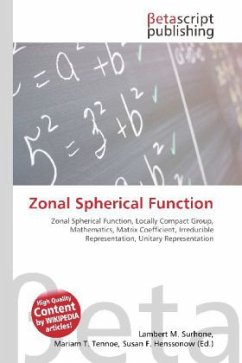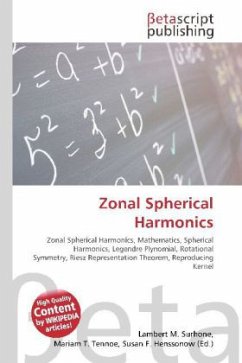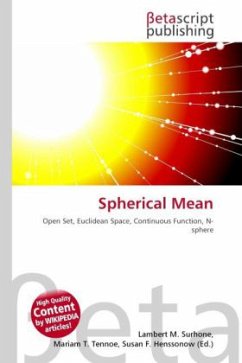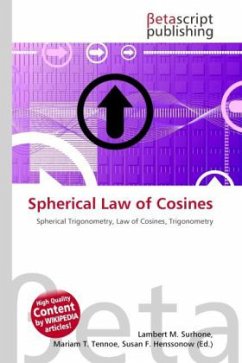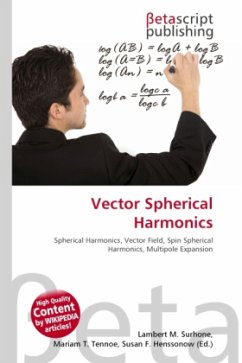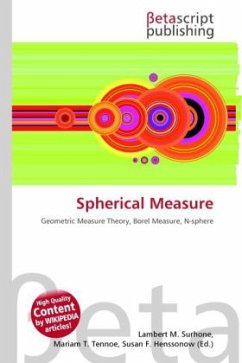Please note that the content of this book primarily consists of articles available from Wikipedia or other free sources online. In mathematics, a zonal spherical function or often just spherical function is a function on a locally compact group G with compact subgroup K (often a maximal compact subgroup) that arises as the matrix coefficient of a K-invariant vector in an irreducible representation of G. The key examples are the matrix coefficients of the spherical principal series, the irreducible representations appearing in the decomposition of the unitary representation of G on L2(G/K). In this case the commutant of G is generated by the algebra of biinvariant functions on G with respect to K acting by right convolution. It is commutative if in addition G / K is a symmetric space, for example when G is a connected semisimple Lie group with finite centre and K is a maximal compact subgroup. The matrix coefficients of the spherical principal series describe precisely the spectrum of the corresponding C algebra generated by the biinvariant functions of compact support, often called a Hecke algebra.
Bitte wählen Sie Ihr Anliegen aus.
Rechnungen
Retourenschein anfordern
Bestellstatus
Storno

